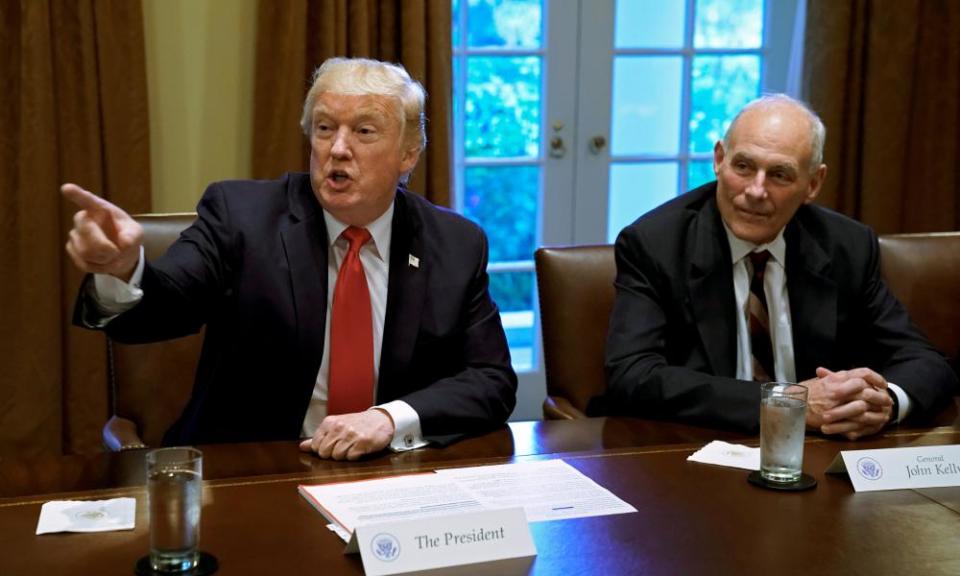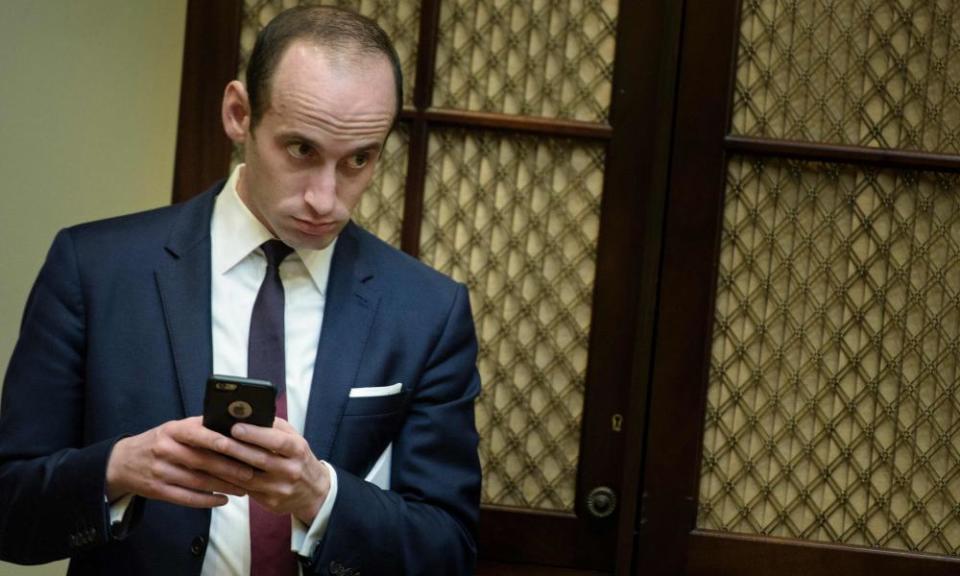The 'hardass', the 'racist' and the 'crazy uncle': how the first Daca deal derailed
John Kelly and Stephen Miller were responsible for walking Trump back from a deal on Friday, renewing concerns about White House proxy power

Pundits have labeled them the “hardass”, the “racist nativist” and the “crazy uncle in the attic”.
Unfortunately, the trio in question happen to be three top government leaders in charge of crafting a solution to the immigration policy standoff that shuttered the US government.
The first two are White House chief of staff John Kelly (a “hardass”, one Republican lawmaker told CNN), and policy aide Stephen Miller (a “racist nativist”, tweeted Norm Ornstein of the conservative American Enterprise Institute).
The third is Donald Trump himself, whom the conservative Washington Post columnist Jennifer Rubin observed has been “closeted away like the crazy uncle in the attic” because he “really cannot grasp or stick to a position on immigration”.
Kelly and Miller were responsible for walking Trump back from a deal he struck on Friday with congressional leaders that would have avoided the government shutdown that began at midnight on Saturday, according to multiple reports.
The prominent role of the aides renewed concerns about proxy power inside the White House and stoked criticism of the president, whom members of Congress from both parties have accused of being a moving target on immigration and other issues.
The Senate minority leader, Chuck Schumer, met Trump on Friday and told reporters he had reached an agreement that would have granted funding for a border wall – a major concession from Democrats – in exchange for protection for migrants who have benefited from the Deferred Action for Childhood Arrivals (Daca) program, known as Dreamers.

But then Kelly called Schumer to tell him the deal was off.
As government services deemed “non-essential” ground to a halt, Schumer threw up his hands, telling reporters that dealing with the White House was like “negotiating with Jell-O”.
Miller, an ideological hardliner whom white supremacist leader Richard Spencer has praised as “a strong American nationalist”, came in for particular criticism as a perceived roadblock to a compromise on immigration.
Senator Lindsey Graham, trying to shepherd an immigration deal from the Republican side, singled Miller out.
“As long as Stephen Miller is in charge of negotiating immigration we are going nowhere,” Graham told reporters on Sunday in a hallway on Capitol Hill. “He’s been an outlier for years.”
The White House hit back directly, releasing a statement that sounded notably Miller-like and accused Graham of going soft on immigration by siding “with people in this country illegally and unlawfully instead of our own American citizens”.
“We need everyone to say Miller is the real president,” Ornstein tweeted, alluding to the downfall of Steve Bannon, a Trump adviser who many said angered the president by gaining too high a profile. “Only way to sideline this racist nativist.”
Miller, 32, helped to kill a previous effort at immigration reform when he was an aide to then senator Jeff Sessions, now the attorney general. Miller favors imposing new limits on legal immigration as well as removing protections from Dreamers and building a border wall whose likely efficacy analysts have challenged.
“When I was in Sessions’ office, this movement for nation-state populism, the intellectual framework for that was being formed,” Miller told Politico of his work to build a coalition on Capitol Hill to oppose immigration reform.
“A big part of my day was being in touch with the people who were the key players in that.”
Mick Mulvaney, the White House budget director, denied on Monday that Trump had lost control of the immigration issue.
“The president makes the decisions about the immigration in the White House,” Mulvaney said in comments quoted by the Washington Examiner. “Period. End of story.”

